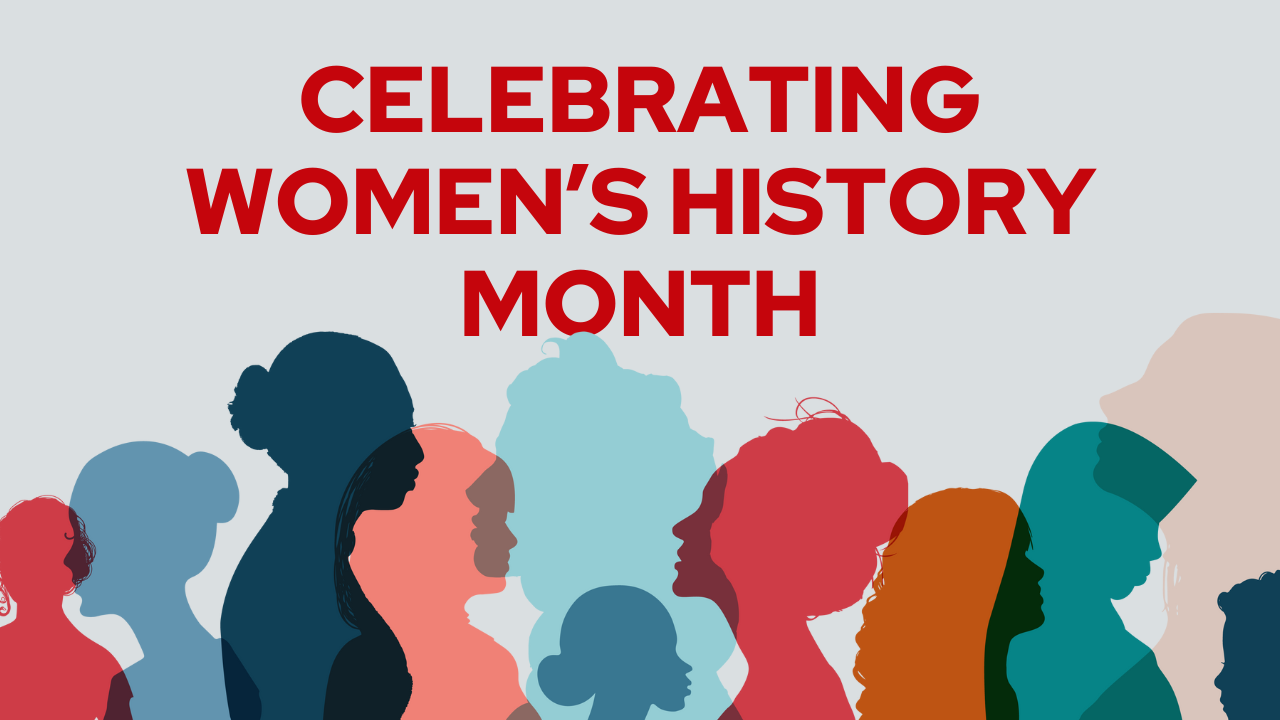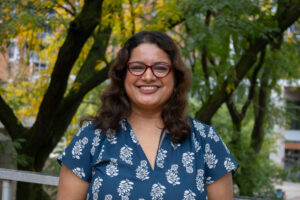
Our second Women’s History Month feature will highlight the work of Kruthika Kamath, a Ph.D. student in the J-School. Kamath’s research covers a range of topics from social justice in media to patterns of care in social movements.

Tell us a bit about your research.
My research pedagogy lies in studying social movements, women’s studies, digital media, news coverage, and persuasive communication. I study the patterns and performance of care and acknowledgment (or lack of) in social media discourse & news coverage. Specifically, I look for patterns of care that emerge and how people (and journalists) utilize this language of care when acknowledging specific incidents and individuals. My current projects are focused on the Indian #MeToo movement and the U.S. abortion rights movement.
What do you think are some of the current challenges for women in research today and how can we ameliorate them?
One of the current problems that women in research face today is the extra effort they STILL need to put in just to be heard on the larger stage, especially when seeing women in positions of power — in academia or in the industry. The way to ameliorate this is to keep consistently amplifying the voices of female researchers. We also need to keep pushing and recommending more female scholars for leadership positions. It means being LOUD but also “quiet” loud at times!
Who is your female research role model and why?
My role model is Christine Garlough, a Professor in the UW–Madison Department of Gender and Women’s Studies (GWS) and the current Director of the Center for Research on Gender and Women. We’re frequent research collaborators and have co-founded an abortion research group between GWS and SJMC. Christine has been instrumental in helping me look at the world of research through a lens of care and acknowledgment, which is also why she’s on my dissertation committee.
She has a unique way of looking at a range of topics and is not afraid of taking risks when it comes to theory, especially with sensitive subjects like abortion. Her passion for the subject and enthusiasm make working with her a breeze. I also love her as a teacher as she has mastered the art of balancing empathy with efficiency. Everyone (whom I’ve spoken to) who has taken classes with her or worked with her has always walked away feeling accomplished, inspired and just seen.
Can you share a rewarding moment from your career?
One of the most rewarding moments of my career is being able to present my work in different settings. One specific moment was when I was invited to talk to the students of Middleton High School during their 2020 Human Rights Week. It was amazing to talk to the next generation about the changes happening for women across different industries thanks to the work of some amazing female activists and thought leaders. This talk taught me how to break down my research into easily digestible discussions that everyone can understand. The student interactions helped me see my own work in a new light and gave me renewed hope for the future.
What’s the most interesting thing you’ve found in your research?
The most interesting thing is how deeply ingrained emotions are in everything we communicate. I find this especially fascinating when I see it in reporting about sexual harassment and the ongoing abortion debate. As much as journalists try to be objective, emotions creep in subconsciously.